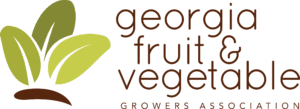Jun 12, 2023GFVGA comments on FDA salmonella report, recommendations
A recent Food and Drug Administration (FDA) report on a summer 2022 outbreak of Salmonella Typhimurium outbreak linked to cantaloupe illustrates the agency’s disconnect with its food safety mission, according to the Georgia Fruit and Vegetable Growers Association.
The report, released in late April, focuses on the salmonella outbreak with 87 illnesses and ensuing investigation of three southwest Indiana farms, the packinghouse they shipped to, and adjacent lands. The investigation was done after the season was over, and although positive salmonella samples were found in all locations, none were conclusively matched to the outbreak strain through whole genome sequencing.
 The FDA report included 10 “recommendations and requirements” for growers of melons and similar produce.
The FDA report included 10 “recommendations and requirements” for growers of melons and similar produce.
“The FDA is not embracing the spirit and intent of the Food Safety Modernization Act (FSMA),” Chris Butts, executive director of the Georgia Fruit and Vegetable Growers Association (GFVGA) and the affiliated Produce Food Safety Services (PFSS), said in a news release. “There is a disconnect in the findings described in this outbreak investigation report and the actual work of FDA — to prevent foodborne illnesses through sharing data with those organizations involved, helping them realize potential issues, and pointing them to potential people and organizations who could help.”
This, and other recent FDA reports, have conducted investigations on land several miles from the farms and packinghouses subject to the investigations, typically concerning livestock, such as the poultry operations in southwest Indiana. The reports also put an emphasis on inconsistent adherence to or deviation from existing standard operating procedures (SOPs) and food safety programs, according to the release.
“FDA inspectors are creating an adversarial environment of ’gotchas’ that does not encourage confidence and safety in fresh produce,” Butts said in the release. “Advocacy groups need to work together with Congress to ensure fair and reasonable treatment of farmers.”
Beth Oleson, PFSS program manager, said farm management practices regularly change in the normal course of business.
“But when those practices differ from written SOPs and food safety programs, it’s essential that companies update their plans,” she said in the release. “Even if a new practice results in an improvement in food safety, the variance from the plan could lead to regulatory actions against the farm — actual practices and written SOPs must be in alignment.”
The best food safety programs include the perspective and evaluation of an independent, objective expert, such as PFSS, Oleson said.
 “Standardized, cookie-cutter plans put the farm or facility at risk,” she said in the release. “Firsthand information is critical. We walk the facilities and review SOPs on site so we can accurately identify potential problem areas and guide successful mitigation of them.”
“Standardized, cookie-cutter plans put the farm or facility at risk,” she said in the release. “Firsthand information is critical. We walk the facilities and review SOPs on site so we can accurately identify potential problem areas and guide successful mitigation of them.”
PFSS, initially founded to provide food safety information to members of GFVGA, has expanded to offer food safety consulting programs to farms, packinghouses and processing facilities around the country. This includes the development of food safety programs, audit and inspection preparation, education and training, supply chain management and recall management.
“We also support our clients through inspections and recall management,” said Oleson. “And since we’re part of GFVGA, PFSS clients are also supporting our advocacy efforts to ensure regulations are fair and reasonable, and that inspectors and regulators don’t exceed their authority or the intent of the law.”
FDA’s post-outbreak recommendations
The 10 recommendations and requirements listed in the FDA report are:
• Review current conditions and practices to determine whether they are adequate or if additional prevention measures are warranted.
• Understanding previous land use can help farms identify and address potential sources of pathogens that may affect their farming operations.
• Be cognizant of and assess risks that may be posed by adjacent and nearby land uses, especially as it relates to the presence of livestock, including poultry, and the interface between farmland and other agricultural areas.
• Consider additional tools such as pre-harvest and/or postharvest sampling and testing of products to help inform the need for specific prevention measures.
• Poultry manure, while valued for its fertilizer value, is a known reservoir for Salmonella spp. Proper application of a manure that has been treated with a validated and verified process to reduce pathogens (e.g. composting with time and temperature measurements) can significantly reduce the potential for the integration of Salmonella or other human pathogens into soils (as compared to the use of raw manures).
• Inspect, maintain and clean and, when necessary and appropriate, sanitize all food contact surfaces of equipment and tools used as frequently as reasonably necessary to protect against contamination.
• When appropriate, use EPA-approved products according to the label for cleaning and sanitizing.
• Inconsistent adherence to or deviation from existing SOPs for cleaning and sanitizing by farms can affect produce safety. Effective communication on farms about SOPs and any changes to those SOPs can help ensure that food safety practices are being followed.
• Root cause analyses may be useful in identifying for growers how human pathogen sources in the broader agricultural environment may contribute to contamination.
• Improve traceability through increased digitization, interoperability and standardization of traceability records which would expedite traceback and help remove contaminated product from the marketplace more quickly, thereby preventing further illnesses. This is not only important for growers, but also critical for shippers, manufactures, and retailers as well, to improve overall traceability throughout the supply chain.
















